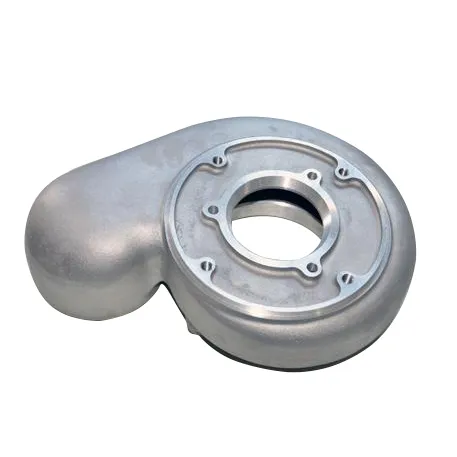Mobile:+86-311-808-126-83
Email:info@ydcastings.com
impeller vacuum pump
Understanding Impeller Vacuum Pumps Functionality, Applications, and Benefits
Impeller vacuum pumps are an essential component in various industrial and scientific applications, providing efficient vacuum solutions. These pumps utilize a rotating impeller to create a pressure differential that draws gas or air into the pump and then exhausts it, generating a vacuum in the process. This article aims to delve into the functionality, applications, and benefits of impeller vacuum pumps.
How Impeller Vacuum Pumps Work
The working principle of impeller vacuum pumps is relatively straightforward yet highly effective. The core components of these pumps include the impeller, the casing, and the motor. The impeller, a rotating component with blades, spins at high speeds, imparting kinetic energy to the gas or air that enters the pump.
As the impeller rotates, the gas is drawn into the pump through an inlet. Once inside, the high-speed rotation of the impeller causes the gas to accelerate outward, creating a low-pressure zone at the pump inlet. This low pressure leads to the formation of a vacuum, which enables the pump to continue drawing in more gas or air. The exhaust port then allows the gas to exit the pump at atmospheric pressure, completing the cycle.
Impeller designs can vary, with options such as backward-curved, forward-curved, or radial blades, each offering distinct advantages depending on the application. The selection of the impeller type can greatly influence the pump’s efficiency, performance, and suitability for specific tasks.
Applications of Impeller Vacuum Pumps
Impeller vacuum pumps are versatile and find applications across various industries. Some notable uses include
1. Chemical Processing In manufacturing and laboratory settings, impeller vacuum pumps are used for processes such as evaporation, distillation, and other chemical reactions that require a controlled vacuum environment.
2. Food Industry These pumps play a crucial role in processes like vacuum packaging, which helps to extend the shelf life of food products by minimizing oxidation and microbial growth.
impeller vacuum pump

4. HVAC Systems In heating, ventilation, and air conditioning (HVAC) systems, impeller vacuum pumps help in pulling moisture out of refrigerant lines, ensuring efficient system performance.
5. Manufacturing Various manufacturing processes, including plastics molding and metal forming, frequently rely on vacuum for enhancing product quality and precision.
Benefits of Impeller Vacuum Pumps
The adoption of impeller vacuum pumps comes with several benefits
- Efficiency These pumps are known for their high throughput rates and efficiency in creating strong vacuums. Their design allows for continuous operation with minimal maintenance, making them cost-effective over time.
- Versatility The various designs and configurations of impeller vacuum pumps enable them to be customized for a wide range of applications. This adaptability makes them suitable for both small-scale laboratory use and large-scale industrial processes.
- Ease of Use Impeller vacuum pumps are generally user-friendly, often featuring simple interfaces for operation and monitoring. This ease of use allows for quick setups and transitions between different tasks.
- Low Maintenance The robust design of impeller vacuum pumps typically requires less maintenance than other types of vacuum pumps, such as diaphragm or rotary vane pumps. With fewer moving parts susceptible to wear and tear, users can enjoy prolonged operational life with reduced downtime.
Conclusion
In conclusion, impeller vacuum pumps represent a vital technology in numerous industries, providing efficient and reliable vacuum solutions. Their operational principles, ranging from effective gas acceleration to consistent low-pressure creation, underpin their effectiveness. By understanding the various applications and benefits of these pumps, industries can leverage their capabilities to enhance production processes, maintain product integrity, and achieve operational efficiency. As industrial needs continue to evolve, impeller vacuum pumps will undoubtedly remain a cornerstone technology in the pursuit of improved performance and quality.
-
Why Should You Invest in Superior Pump Castings for Your Equipment?NewsJun.09,2025
-
Unlock Performance Potential with Stainless Impellers and Aluminum End CapsNewsJun.09,2025
-
Revolutionize Your Machinery with Superior Cast Iron and Aluminum ComponentsNewsJun.09,2025
-
Revolutionize Fluid Dynamics with Premium Pump ComponentsNewsJun.09,2025
-
Optimizing Industrial Systems with Essential Valve ComponentsNewsJun.09,2025
-
Elevate Grid Efficiency with High-Precision Power CastingsNewsJun.09,2025











